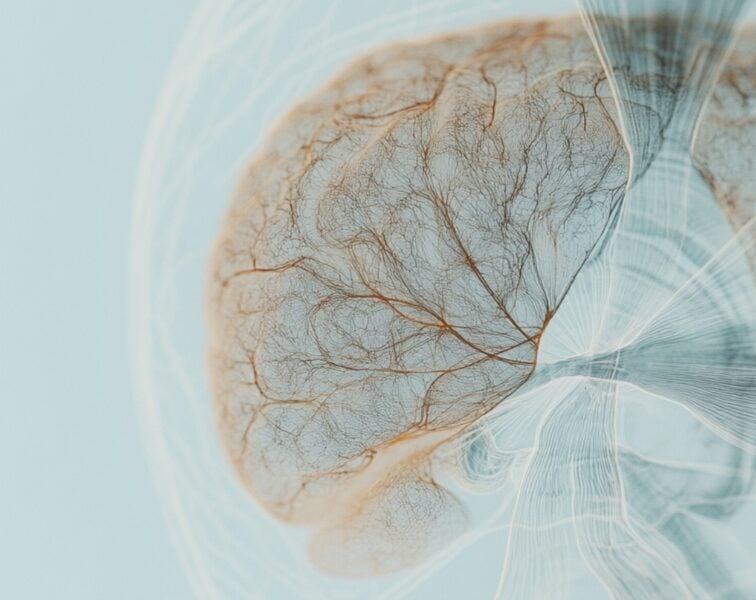This clip is from AMA #14: What lab tests can (and cannot) inform us about our overall objective of longevity, originally released on May 18, 2020.

Show Notes
Alzheimer’s disease—what’s driving Alzheimer’s disease, and what labs can tell you about your risk [33:15]
What’s driving Alzheimer’s disease?
- Genetics
- Metabolic health
- Vascular health
- Inflammation
- Toxins
1 | The genetic component:
- It has a strong genetic component
- Not an acquired set of mutations, but rather an inherited set of alleles that puts you at higher risk or lower risk
-Relevant genes
- ApoE4 is most important in terms of understanding risk
- Next most relevant is TOMM40 – but this may not be an independent risk factor
- In 1993, Allen Roses discovered the risk increase for Alzheimer’s in people with the ApoE4 gene
- He later alerted people to the TOMM40 gene
-Deterministic genes
- ApoE4 does raise risk but it is not considered a “deterministic gene”
- However, a small percentage of AD cases (about 1%) are due to “deterministic” genes
- The following genes may be “fully penetrant” and therefore “deterministic” which means if you have a mutation in them you WILL get AD:
- Amyloid precursor protein (APP)
- PSEN1, and
- PSEN2
- In cancer, for example…
- There are a couple things that are CLOSE to being deterministic such as:
- APC with colon cancer
- Lynch syndrome
- And about 60-70% of women with BRCA1 get breast cancer
- There are a couple things that are CLOSE to being deterministic such as:
2 | Metabolic Health component of Alzheimer’s disease
- “Metabolic health really matters. It is the common thread that links all of these chronic diseases.”
- However, on mortality tables, it doesn’t really show up individually as a huge source of death.
3 | Vascular component to Alzheimer’s disease
- This is a huge component
- See podcast with Francisco Gonzalez-Lima for more on this
4 | Inflammatory component to Alzheimer’s disease
- Enormous component, says Peter
5 | Toxins related to Alzheimer’s disease
- “There’s almost assuredly a component that revolves around toxins and other things like that.”
Blood tests for the deterministic genes:
- You can test for the deterministic genes pretty easily (PSEN1, PSEN2, and APP)
- However, that’s usually just to confirm a strong suspicion after seeing a strong family history of getting AD
- History of AD:
- Alois Alzheimer diagnosed the first patient
- It was a woman in her 50s that had early onset AD and she most likely had one of the deterministic genes
- “And this could be a real tragic case of medical history that our entire understanding of a disease, which is predicated on this incident case, has nothing to do with 99% of the diseases that people actually get.”
The punchline when it comes to Alzheimer’s disease:
- We get pretty darn good information from the blood
- We get the relevant genes
- We get all the vascular stuff
- We get all the metabolic stuff
- We can’t get as much good info about the inflammatory stuff
- And we’re pretty bad at getting the toxins because truthfully we just don’t know
“But overall we get a pretty darn good way to handicap someone’s risk of Alzheimer’s disease.”



